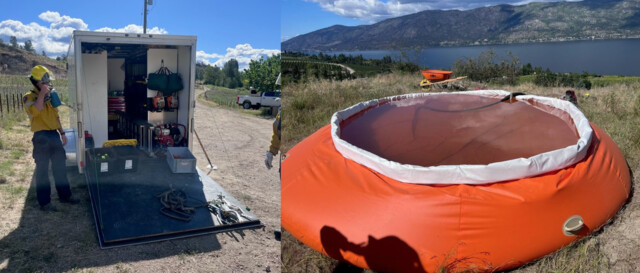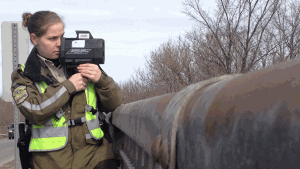A routine wildfire training exercise in the District of Lake Country quickly turned into a real-life situation on Wednesday.
The exercise, which was being conducted by the Lake Country Fire Department, was meant to simulate a wildfire scenario and test the department’s response and coordination with other emergency services.
However, as the training was underway, a real wildfire broke out in the area, forcing the firefighters to shift their focus from the exercise to the actual emergency.
According to Fire Chief Steve Windsor, the timing of the real wildfire was unexpected but it provided an invaluable opportunity for the department to put their training into action.
“We were able to seamlessly transition from the training exercise to the real thing,” Windsor said. “Our firefighters were able to apply the skills and techniques they had just practiced, which helped us to quickly contain and extinguish the fire.”
The fire, which was located near the intersection of Oyama Road and Pelmewash Parkway, was brought under control within a few hours with the help of additional resources from the BC Wildfire Service and neighbouring fire departments.
No structures were damaged and there were no reported injuries.
Mayor James Baker commended the fire department for their swift and effective response to the real-life situation.
“I am proud of our fire department and their ability to handle this unexpected emergency with professionalism and expertise,” Baker said. “Their dedication to training and preparedness has once again proven to be crucial in protecting our community.”
The cause of the wildfire is still under investigation, but it serves as a reminder for residents to be vigilant and take precautions during the hot and dry summer months.
The District of Lake Country is also reminding residents to have an emergency plan in place and to follow all fire safety regulations to prevent future incidents.
As for the training exercise, it will continue as planned to ensure that the fire department is always prepared for any potential emergencies in the future.




